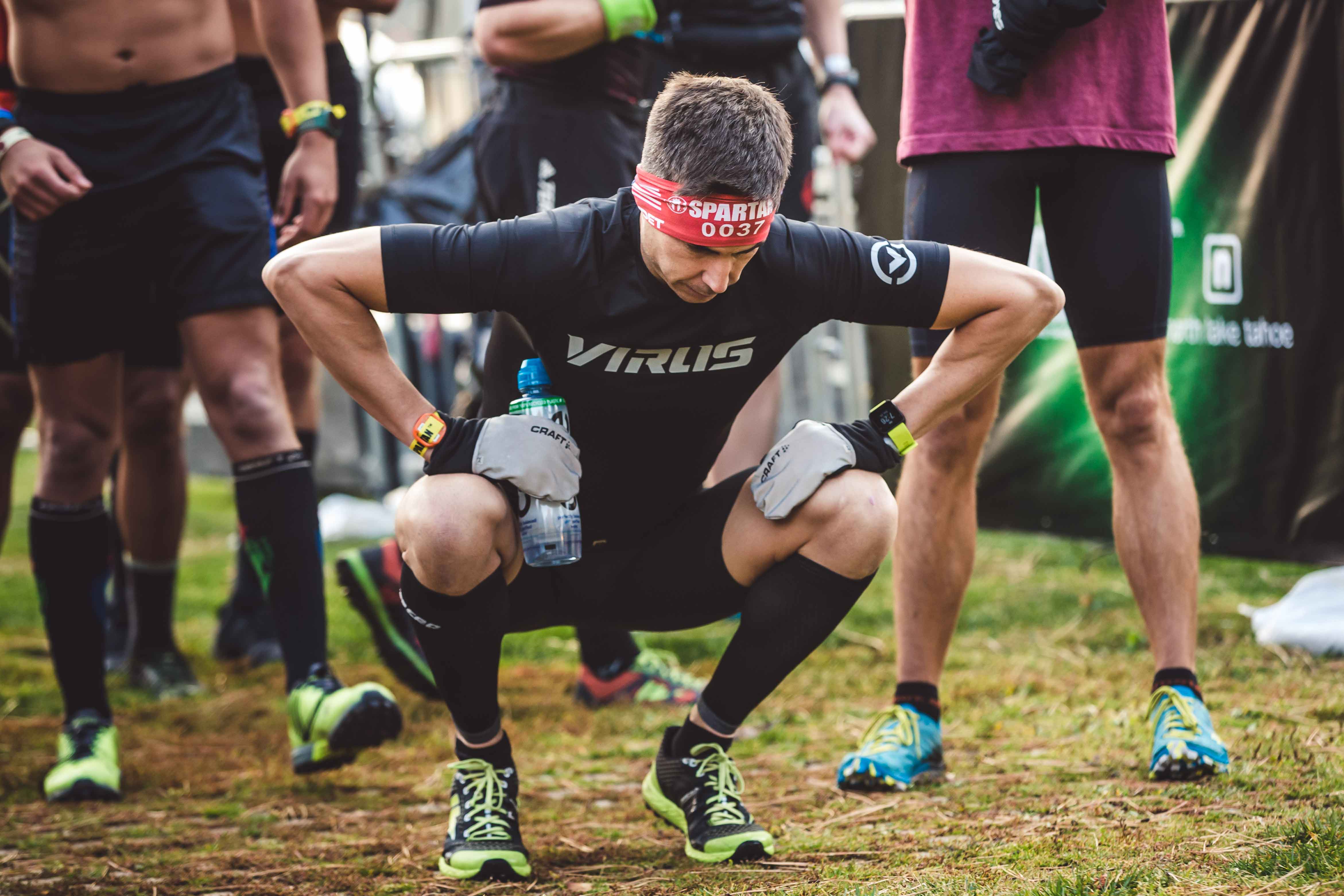What to Eat Before a Run: Quick Sprints vs Long Endurance | Spartan

If you’re going for a run, you’ll likely want a snack for pre-workout fuel. However, what and how much you eat may change based on the duration of your workout and its intensity level. Either way, eating carbohydrates is the best route, since they’ll provide immediate energy to use during your workout.
Why Your Body Needs Food Before a Run
No matter the type of run or workout, you’ll need to eat something prior.
“Exercising muscles prefer glycogen — stored carbohydrate in your muscles — which is especially important to maintain a high intensity and sustain longer duration workouts,” Kelly Jones, MS, RD, CSSD, LDN, says.

That snack before a workout is your last opportunity to top off carbohydrate stores, which your muscles will pull from in order to perform most efficiently and for longer.
Related: How to Choose the Right Carbs for the Right Race
“Having more stored will help you to maintain your blood sugar during training for under an hour of work," Jones says. "When working out for over an hour, it's recommended to ingest more carbohydrate during exercise."
Skipping a snack before running will cause you to run slower, making those high-intensity sprints feel too difficult. Plus, you might burn out faster from low energy and nutrient stores, where you won’t reach the mileage of a longer run you’re aiming for. And not only would you head home early, but you might be feeling starving.
“Skipping a pre-workout snack could lead to excess hunger post-workout or later in the day, which could lead to overeating,” she explains.
What Should You Should Eat Before a Run?

The type of snack that you eat pre-workout depends on a few factors.
“It depends on how long you have before running, as well as some individual differences in digestion rate and preferences,” Jones says.
In general, you’ll have more or less quantity based on how soon you plan to start your run. If you only have 10 minutes before going for a run (which is common for early risers who enjoy a morning run), eating something small that’s easily digestible is best. Jones recommends drinking some water with a few medjool dates.
Related: 7 Healthiest Pantry Staples Every Athlete Should Have at Home
“Or have 1–2 tablespoons of honey or maple syrup,” she says. “Another option is 6–8 ounces of salted pomegranate juice or orange juice so that you get energy to your bloodstream quickly without filling your stomach too much."
If you have a bit longer to digest your snack, then a banana with nut butter, whole wheat crackers with hummus, homemade energy bites, or oatmeal with dried fruit are all excellent choices, as they have a combination of both fast-acting and longer-lasting carbs.
"What’s more, there are a few grams of fat, protein, and fiber to slow digestion and absorption slightly, but not enough to cause stomach discomfort,” she says.
It's important to limit foods with excess fat, protein, or fiber within 60–90 minutes of a run, to ensure that those nutrients aren't sitting in your digestive tract, putting you at risk of general discomfort or cramping mid-run.
What to Eat to Gear Up for Sprints

If you have a shorter workout or one that involves sprinting coming up, you probably need less food intake. If you’re simply going for a short run but at a moderate speed, you don’t need to stress about getting a big meal down. (Perhaps just eating a banana will suffice.)
But if that running will include accelerated sprint work, you might need more fuel for energy because there will be moments in your run that are extremely challenging and taxing on the body’s muscles.
Related: Your Pre-Sprint Checklist: 7 Crucial Steps to Maximize Your Speed
Since you're reaching high intensities, required carbohydrate intake will likely be greater, and you'll want to consume your carbs almost immediately before taking off.
“Topping yourself off five minutes before going out for a run with some dried fruit — even if you had a larger snack 90 minutes prior — may be helpful,” she says.
Choosing foods that are high in carbs and low in protein, fat, and fiber is even more important because sprints can lead to stomach discomfort if the snack is heavy and sitting in your gut. So, a banana with a little nut butter or granola bar would work, with that little booster before hitting that run.
Plus, you may cramp up if you’re prone to sweating a lot during high-intensity work. There's a greater chance of sweating hard and fast throughout those taxing sprints, so your snack should have electrolytes to replenish those lost through sweat. Peanut butter is one naturally electrolyte-packed snack, or you can have an orange with pumpkin seeds.
Related: The Perfect Pre-Run Snack to Have on Hand Before Your Race
“If you have lots of rest periods, you may find that the quantity of food you need is less, but the composition of your snacks should remain the same,” she says.
With more rest sets total or greater time spent during each rest set, you probably don’t need as much food.
How to Fuel for Longer Endurance Runs

When going for a longer run, your intensity is going to be lower, so you don’t need that little boost of carbohydrates five minutes before the run. You won’t be running with such high impact and plyometrics, but rather at a more manageable pace.
Related: Eat These Foods During Your Next Ultra Race
With any moderately-paced run, you don’t need to worry as much about stomach pain and cramping, since the work isn’t as taxing. However, if your run is past an hour, you might want to bring something with you to replenish electrolytes and fuel mid-workout. That bit of fuel will help you make it to the end if you think you’ll lose energy halfway through.
That’s where an electrolyte sports gel, small granola bar, a few dates, or a banana would come in handy. So, think of it this way: a booster snack mid-workout for longer runs versus a booster snack five minutes before heading out for sprints.
Plus, if you’re going the distance route, you can likely eat something a bit more filling as long as it won’t feel too heavy.
“With longer workouts, you're less likely to hit over 90% of max effort often, and therefore may be able to tolerate a bit more in your stomach in the form of fat, fiber, and protein,” she says.
Related: My First Spartan Race Was a Beast. Here Are 5 Things I Wish I'd Known.
Still, stick with moderate portions to avoid going overboard and feeling weighed down and sluggish.












